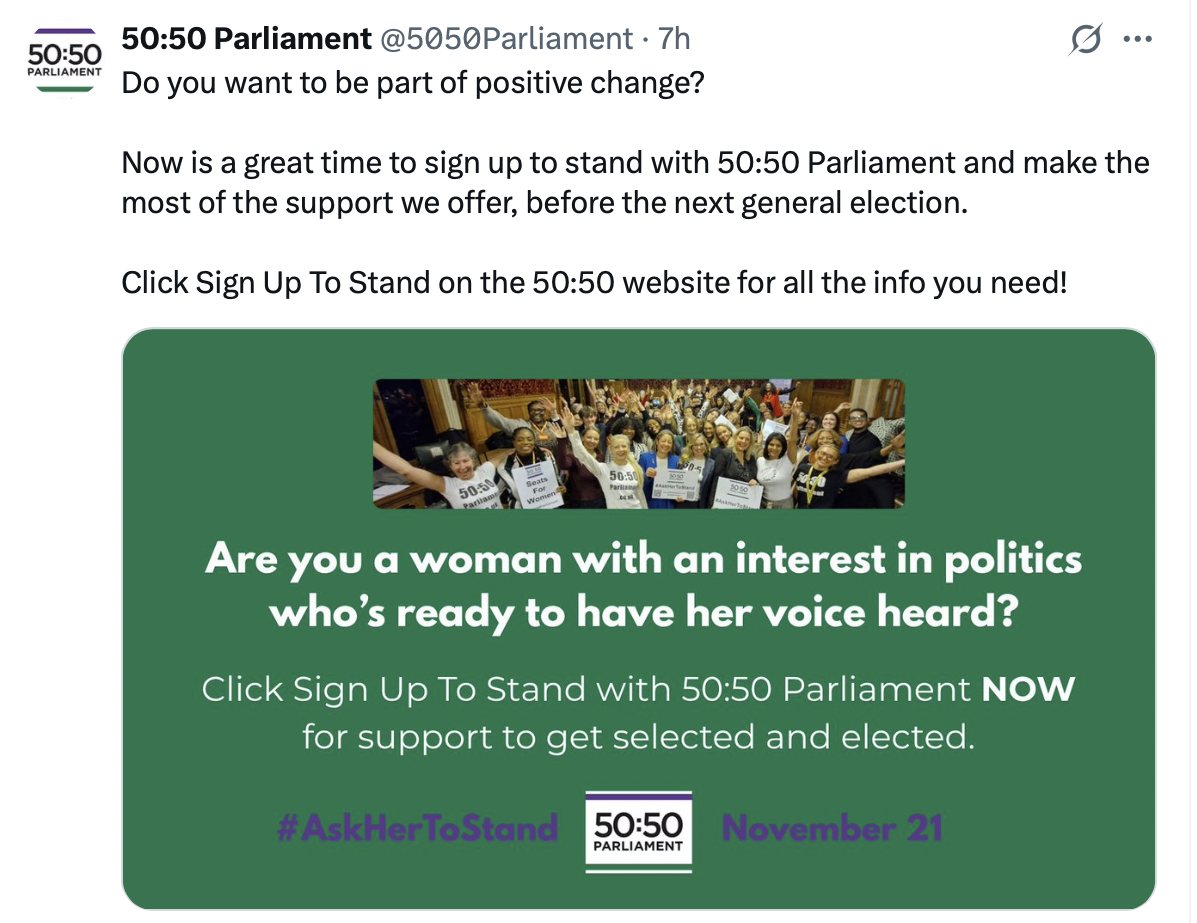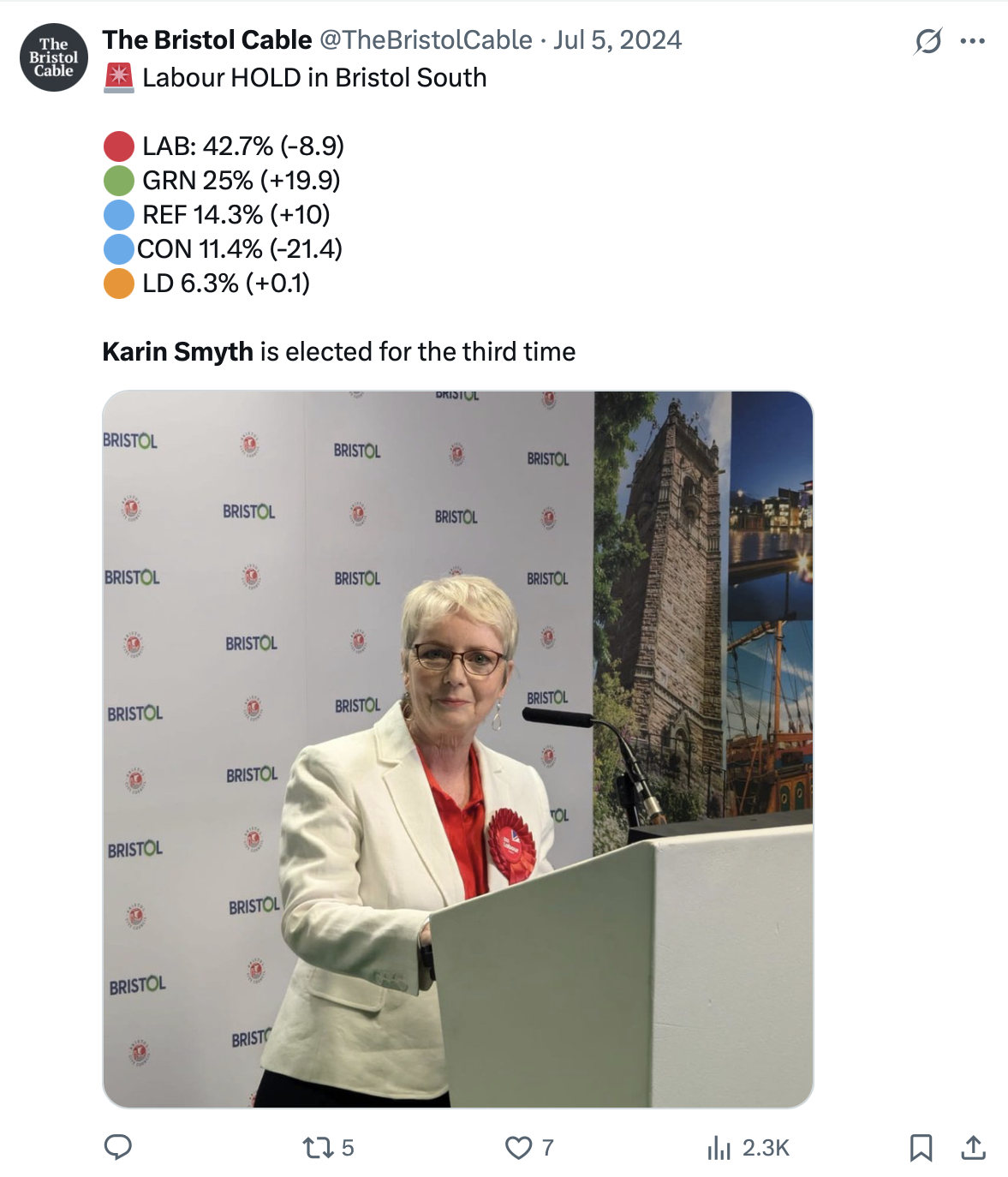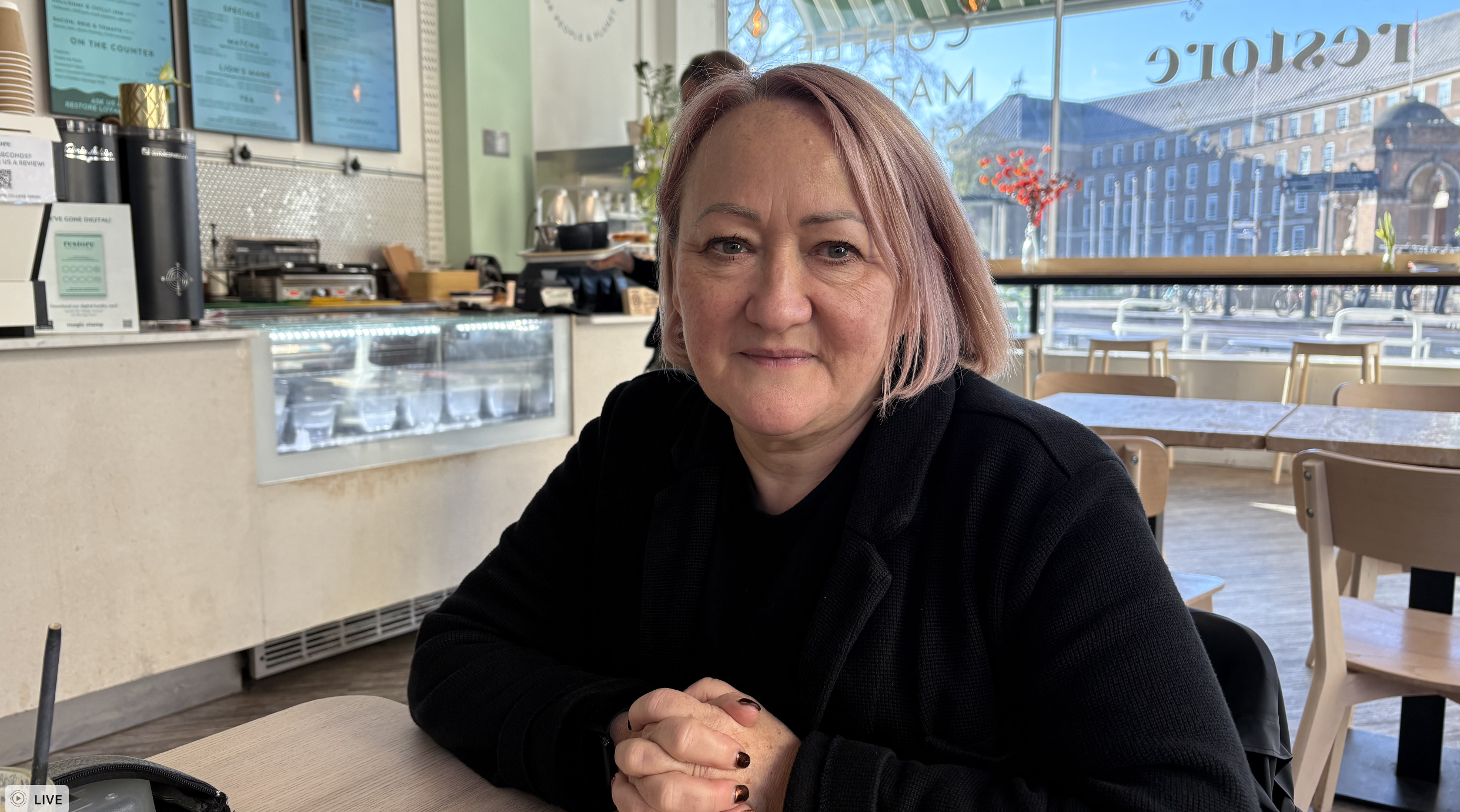On the 21st of November, 1918, Parliament passed the Qualification of Women Act, which finally allowed women over the age of 21 to stand for election in the House of Commons. In that very first election, only one woman – Constance Markievicz – actually won a seat. She never took it, but her victory opened a door that had been shut for centuries. Over 100 years later, “Ask Her to Stand” marks that milestone by actively encouraging women to step forward and run for public office. It’s a national push by 50:50 Parliament , an apolitical charity dedicated to helping women progress in politics, and is a reminder that the next generation of women leaders could be sitting right here in Bristol.
Women make up 51% of the population, yet only 41% of MPs and fewer than 38% of local councillors. Bristol does better than most though, for example, three of the city’s five MPs are women.
To mark this historic day, The Bristol Tab spoke to the Deputy Leader of Bristol City Council Heather Mack, Kerry McCarthy MP, Minister of State for Health Karin Smyth, alongside women from the Bristol Young Green’s to discuss what it’s like to be a woman in politics, especially in a city as progressive and outspoken as Bristol.

50:50 Parliament via X
I meet Cllr Heather Mack inside Bristol City Hall, where the buzz of afternoon meetings fills the building, and she explains that her route into politics wasn’t something she ever planned.
“It was a little bit accidental” she says. “There was a vacancy, and I was encouraged to go for the vacancy. I was asked to stand repeatedly, but I didn’t really expect to win.”
Cllr Mack believes that Bristol’s political culture plays a huge role in empowering women.
“I think that stems from everything Bristol is about. I just think that it is a fiercely feminist place. It’s culture of being supportive and empowering is what makes a big difference. We celebrate and emphasise women’s voices and I think that really helps, because stepping into politics as a woman is more difficult.”
But even in Bristol, the challenges aren’t evenly spread. Online abuse is something she doesn’t sugarcoat.
“More aggression in politics is aimed at women. Social media is a nasty place for women in politics, I have mostly got off social media which really helps.”
Inside the council, she says that the atmosphere is different, that the council members around her are supportive, it’s often when she’s outside the building that she encounters issues, often finding herself outnumbered by men, but this hasn’t stopped her. Reflecting on her own career progression and what she has achieved, I ask her if she has any advice for women looking to start a career in politics:
“If you want to change things, if you think that there are system with problems in the world, if you’ve got a bit of fight in you, if you like sometimes to have an argument about what’s right and wrong, you can do that in politics and you can be making a difference, and that can be your job.”

Cllr Heather Mack, Deputy Leader of Bristol City Council
Minister of State for Health MP Karin Smyth speaks of the huge responsibility that she feels to do for other women what they did for her, to inspire and help others to believe a career in politics is possible.
She explains that she entered the political world relatively late. She was in her late thirties, juggling raising three boys with her demanding job in the health service. She wants to highlight that there is never a “good time” to start a political career, but that she wanted to “put her money where her mouth is” and go for it. She is clear that she has faced barriers for being a woman, some of them subtle, and some of them overt.
“At all stages of my life I’ve experienced that judgment – that I either have to do something because I’m a woman, or I can’t do something because I’m a woman. That is what it is. I don’t let it stop me.”
Even now, as a senior member of the government, she often finds herself the only woman in the room. She talks about the subtle, systemic barriers that still crop up: something as simple as arriving at an event to find the microphone set to the average male height rather than the average female one. She now calls ahead to make sure it’s adjusted before she arrives.
“Don’t let those barriers put you off. Go for it. Know your own politics, expose yourself to debate, people disagreeing with you – that’s a good thing. Whatever it is that you feel is stopping you, confront it,” she says.
“It’s so rewarding, being in politics, being involved in people’s lives, to talk to them, to help them, to make a difference, to make change.”

Minister of State for Health, Karin Smyth MP via @TheBristolCable on X
I meet Kerry McCarthy in a café on Park Street, where she talks about her political beginnings. She grew up arguing about politics with her right-wing stepfather, and although she was interested in politics, she never considered it as a career. One day, she cut out a Labour Party advert from The Guardian, and the rest is history. She was elected in 2005.
She describes the everyday awkwardness women in politics can face: the conversations that start professionally but become uncomfortable, the moments when you’re not sure if you’re being dismissed because of gender or simply because someone else enjoys the sound of their own voice.
“If you’re in a room and there’s a pompous man who really likes the sound of their own voice, is the reason you can’t be heard because he’s a man and you’re a quieter woman? Or is it because he’s a pompous person who really loves the sound of his own voice? It’s always multifaceted.”
She explains that, especially early on, people would often try to guide her toward women-only groups or committees. They usually believed they were being supportive, but she felt it sometimes pushed women onto a side track rather than into the main spaces where decisions were happening. She didn’t join the women’s board when it was suggested to her; instead, she chose to go straight for the main one.
She recognises the important work that women’s organisations, such as Labour Women’s Network do, but she stresses that women shouldn’t feel limited to those spaces.
McCarthy points out how the landscape for women in politics has changed dramatically since she first entered Parliament.
“There’s such a variety now, of women in politics, and in the early days it did tend to be people like Harriet Harman, who were real trailblazers, but came from quite privileged backgrounds, sort of very well-educated, well-connected, London-based, and now you’ve just got people from such a diverse range of experiences,” she says. “Now you’ve just got people from such a diverse range of experiences,” she says.
But despite that progress, she says the biggest challenge women still face is the sheer volume of abuse. It becomes especially intense, she explains, when women speak publicly about sexism or gender inequality; simply raising those issues makes you more visible – and therefore a target.
“The main thing for women is the abuse. We do get alot of abuse.”

Kerry McCarthy, MP for Bristol East
For Amy Hurrell, a member of Bristol Young Green’s, politics started with writing school magazine reports about political visitors, all of whom, she says, were men.
“I struggled, until Carla [Denyer] came along, to find any female role models in politics. Every single political visitor was a male and a lot of the talk about female role-models was directed at people like Margaret Thatcher, who I don’t agree with on a political basis.”
Now, she hopes to stand as a Green candidate in the 2027 South Gloucestershire elections.
Amy says movements like 50:50 Parliament are essential, not just for women, but for all underrepresented and minority groups.
“I understand that it’s not 50/50 right now, not even close, and the representation for other minorities is also even worse so I think movements like 50/50 parliament are really useful for encouraging people, not just women, to stand.”
